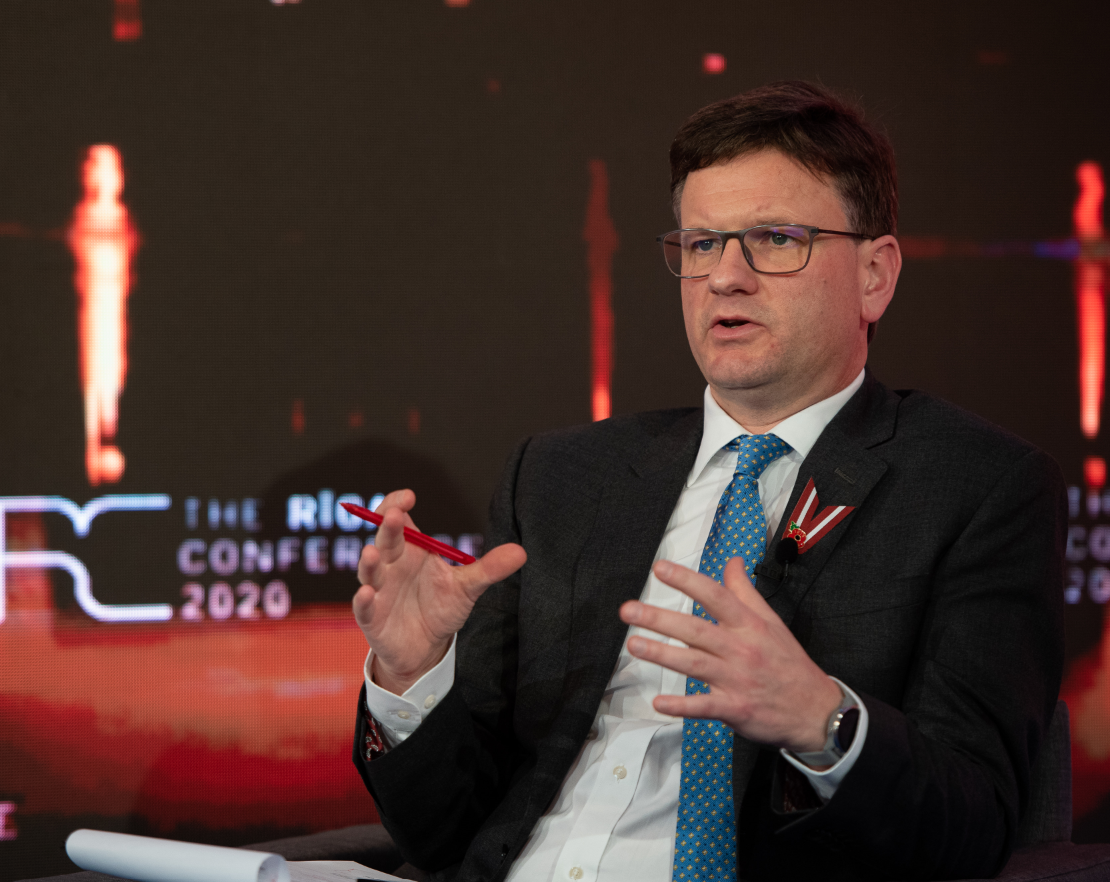Panel Participants:
Hon. Ronald Harold Johnson, United States Senator
Baiba Braže, Assistant Secretary General of NATO for Public Diplomacy
Anna Fotyga, Member of the European Parliament, former Minister of Foreign Affairs of Poland
Dr. Alexandra de Hoop Scheffer, Director of Research, Transatlantic Security and Director of the Paris Office of the German Marshall Fund of the United States
Moderator:
Ben Heap, Senior Expert, NATO Strategic Communications Centre of Excellence
The moderator initiated the panel by highlighting that in june of this year the European Defense ministers agreed to develop a strategic compass that would define European aims in security and defence policy, to facilitate a more rapid respones in the event of a security crisis, and converge the positions of member states towards a common way of defining threats and challenges. Of course, the pandemic will have significant impacts on transatlantic economies which may shift the priority of defense lower on the list. Bolstering defence may thus mean helping with economic recovery – the lins for what security and defense mean are becoming increasingly blurred, with more and more issues that demand a unified stance among the transatlantic. Digital rights, counter terrorism, climate change, even healthcare all have a place at round table discussions, especially within NATO.
The first discussant brought the perspective of the US, highlighting that support for NATO remains a bipartisan position in the US, and that over history NATO has proven itsel as a crucial vehicle for collective response, and it is a position the US wishes to see it continue playing – potentially even more than before. To that end, during the past few years the amount of countries meeting the two percent mark in NATO have doubled, with urges from US leadership. Under the Trump administration lethal defensive weaponry was authorized to support Ukraine, a more effective response than under the previous administration – since then, there have been no further incursions by Russians. Though it has become a frozen conflict, the US position has been made clear towards European allies through moves such as this one. The US sees the collective defense utility of NATO especially important to support sanction regimes and cyber capacity, which are very important mechanisms at local levels. Nordstream 2 remains an aspect that the US does not see eye to eye on with Germany, and the discussant urged that cooperation with Russian in that regard stop.
The discussion moved on to discussing whether the two percent investment is a useful metric for discussing participation in NATO, given the evolution of the concepts of defense and security in the past twenty years. The next discussant continued the theme by highlighting that the way information spreads has significantly changed the defense landscape, especially with the increasing need for cyber capacity. However, the discussant noted that China remains the second biggest spender in defense budget, and ar expanding in the Arctic and Africa, so NATO remains critical to be a counterweight in traditional military capacity first and foremost. China is also not necessary an adversary, but it is currently providing a variety of new challenges to the transatlantic alliance and NATO, which need to be worked on together.
The next discussant highlighted that the most recent NATO strategic concept is outdated – it was adopted before the Russian aggression on Ukraine, and it did not properly note the rise of china or the threats of terrorism. The new version for 2030 being worked on currently will revitalize the NATO direction and provide the much needed relevance that has been formally lacking. However, debates on this strategy are not easy and there are tensions among allies – those need to be quelled in order to ensure that NATO can continue its mission. Beyond that, for NATO to be relevant there is aneed to expand forward presence as Russia is currently the main military threat to NATO. There is also a need to work more with third countries to bring some counterweight to China. To that end, it is also important to be firm in our treatment of partnerships with other countries.
Discussion then moved to the concept of strategic autonomy. The discussant highlighted the importance of keeping a political diplomatic autonomy. The European Union should not have to fully support missions by the US, and vice versa. Examples of Libya in 2011 and Syria in 2013 have been precursors to the trend, and there is fear that the meditarranean tensions could possibly lead to more conflict involving partners that may not want to be involved. The discussant proposed that a method of avoiding this could be a division of labor on geographic grounds: the US should handle the Asia-pacific and Chine, while Europeans could take care of their neighborhood.
The discussants agreed that ultimately, NATO remains even more relevant than before, but there needs to be a strategic reevaluation of priorities. This can involve discussion of how NATO functions can be expanded or how they should better be aimed, but keystones like the two percent rules should not be changed beyond their current ambit, as it may lead to a slippery slope.

